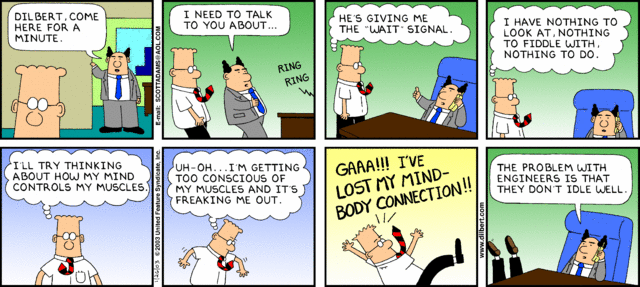
The fundamental question in all of philosophy is the nature of mind, and the relationship of mind to matter. Of course not everyone thinks this is an important question to concern yourself with. Witness this Victorian anti-philosophical proverb in verse form, which was apparently originally penned, in a slightly different form, by Thomas Hewitt Key (1799-1875), in Punch, vol. XXIX, #19 (July 14, 1855):
(Bertrand Russell remarks that when he decided to become a philosopher, his relatives repeated this to him endlessly. It ceased to be amusing, he said, after the hundredth time or so.)
The matter of mind has mattered to a good many minds, however. In fact, not only is it the most basic issue in the history of philosophy, it is certainly one of the most contentious. The two basic viewpoints are: MATERIALISM, the theory that matter is primary (the fundamental reality) and that mind is a set of characteristics of certain complex organizations of matter (brains and eventual computer equivalents), and IDEALISM, the theory that mind is primary (the fundamental reality) while matter is somehow a development of (or illusion of) mind. Religiously inclined people almost invariably adopt some form of idealism, while the more scientifically inclined have leaned more towards materialism, at least in their practical work if not always in their professed world view. A third approach is DUALISM, which claims that mind and matter are on a par, that neither depends on the other.
